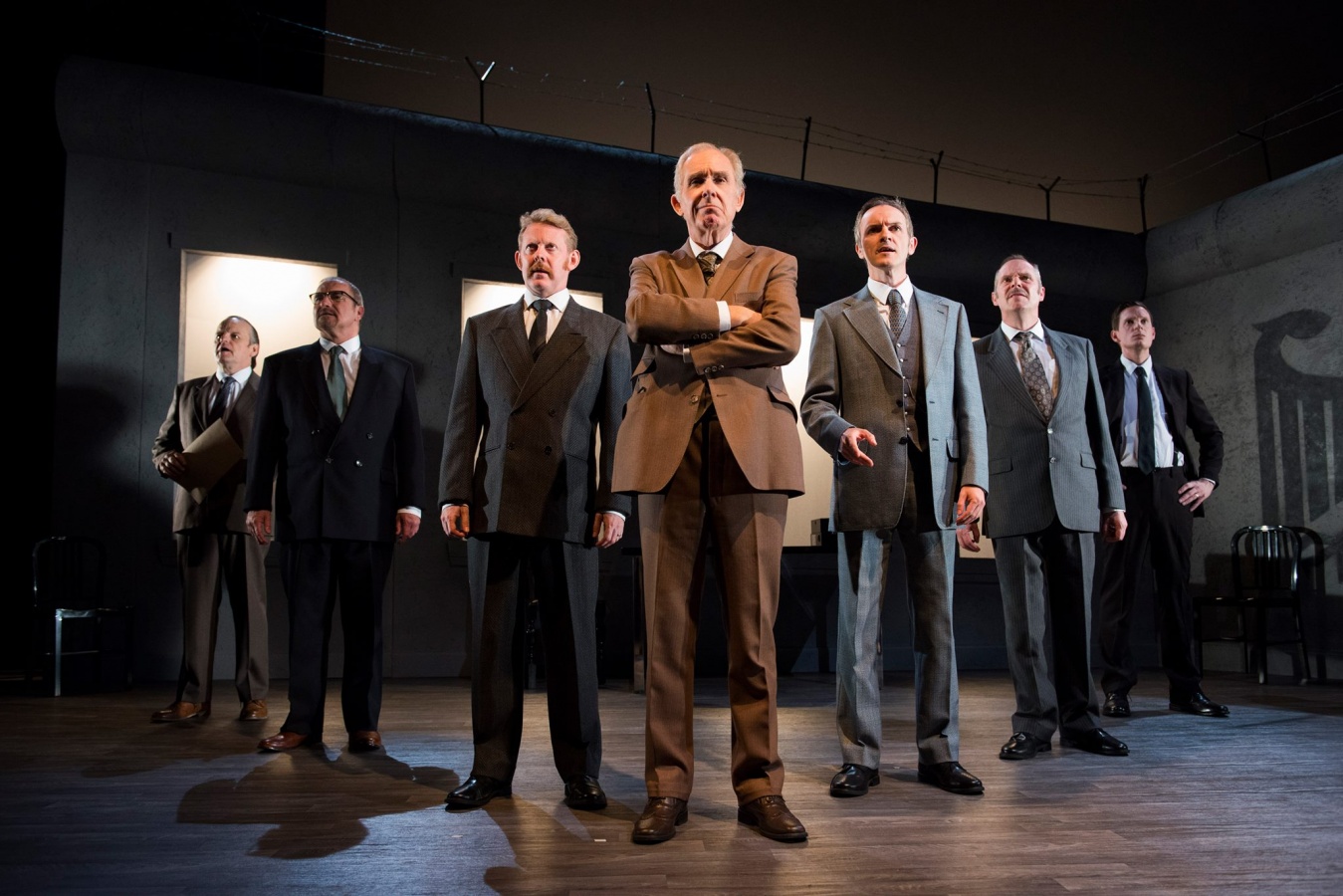Michael Frayn’s 2003 play Democracy combines politics with the downfall of trust. Delving into the infamous Guillaume Affair, it documents the real life events of the highly commended, Nobel Peace Prize winning Willy Brandt, played by Tom Hodgkins. The show teaches us of his appointment as the first Left Wing Chancellor of West Germany in forty years and his developing, emotional relationship with an East German spy acting’s as his assistant, Gunter Guillaume, played by Neil Caple.
Slow to start, in the first act Democracy runs the risk of becoming tedious and ever so slightly confusing with a multitude of men in suits pacing the stage saved occasionally by Guillaume’s Stasi handler Arno Kretschman, played by Michael Morleand. Dressed in archetypal 1960’s German casual wear and acting as a sarcastically malicious omniscient narrator; Kretschman gives the audience some much needed rest bite from proceedings. In fact plot and play is held together in the later scenes involving Brandt and Guillaume, and the subtle development of their relationship. Particularly poignant proves to be the duologue between the two on holiday, in which Brandt reminisces about his earlier life and dwells upon what he ‘could have been’.
The concentrated, mellow golden lighting and Hodgkin’s ability to portray the unseen, fragile side of a powerful and greatly revered politician, is deeply moving. The audience are shown how he cracked under pressure of leading a nation once united, of the highly questionable motives of war and of the rapid division created by Cold War ideology.
Throughout the duration of the play Hodgkin’s portrayal of Brandt stands a cut above the rest. During his numerous monologues he subtly yet confidently dominates the stage. With his deep emotive voice and warm expressions, he allows the audience to envisage just why Willy Brandt was so respected.
Despite at points having an air of pantomime about it, Democracy skilfully articulates the scheming and backstabbing of politics. Some of these ideas felt somewhat relatable to current political affairs, reminiscent of Labours current divisionary turmoil. With the culmination of the play, the audience comes to the slow realisation that Guillaume possibly isn’t the true enemy after all as Helmut Schmidt (played by Jack Lord), after many calculating moves, eagerly grasps chancellorship in Brandt’s not-even-cold wake.
In general Democracy’s use of props was questionable; the inclusion of a projected screen behind the faux Berlin wall that almost satirically produced photos of each of the characters, their name stamped in a typewriter font, was unsophisticated and rather more suited to a high school production. The misuse of props not ending here: at the appointment of Willy as Chancellor, celebrations are combined with around twenty white balloons falling from the ceiling. This is perhaps something to be expected of Potterrow’s Big Cheese, not a play documenting the politics of Cold War Germany.
Democracy also seemed conflicted as to whether it desired to be a sincere portrayal of the complexity of twentieth century politics or a light hearted comedy, with the majority of the humour running throughout seeming slightly forced falling short of real laughter.
Despite a lacklustre start Democracy unquestionably gains momentum, with heart-warming scenes of political honesty and intricate cross cutting demonstrating the convoluted dynamics of politics. Yet there are too many points at which the tone fell flat or a confusing mismatch of men in suits dismayed at yet another political “crisis”. The audience are left with little to hold on to and, in light of this, Democracy was enjoyable yes, but not memorable.
Democracy at the King’s Theatre, Edinburgh (run now ended)
Photo credit: Opening Lines Marketing

